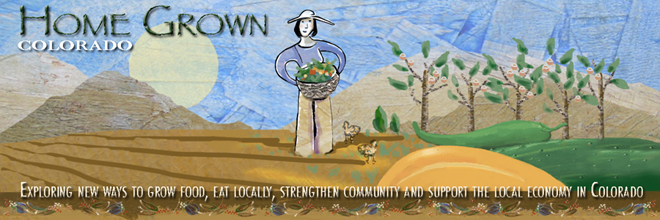Why build a vertical farm in the middle of the city? Here are some reasons to think about, compliments of vertical farms.org:
"By the year 2050, nearly 80% of the earth's population will reside in urban centers. Applying the most conservative estimates to current demographic trends, the human population will increase by about 3 billion people during the interim. An estimated 109 hectares of new land (about 20% more land than is represented by the country of Brazil) will be needed to grow enough food to feed them, if traditional farming practices continue as they are practiced today. At present, throughout the world, over 80% of the land that is suitable for raising crops is in use (sources: FAO and NASA). Historically, some 15% of that has been laid waste by poor management practices.
"The concept of indoor farming is not new, since hothouse production of tomatoes, a wide variety of herbs, and other produce has been in vogue for some time. What is new is the urgent need to scale up this technology to accommodate another 3 billion people. An entirely new approach to indoor farming must be invented, employing cutting edge technologies. The Vertical Farm must be efficient (cheap to construct and safe to operate). Vertical farms, many stories high, will be situated in the heart of the world's urban centers. If successfully implemented, they offer the promise of urban renewal, sustainable production of a safe and varied food supply (year-round crop production), and the eventual repair of ecosystems that have been sacrificed for horizontal farming."
Other advantages of vertical farms:
- Year-round crop production; 1 indoor acre is equivalent to 4-6 outdoor acres or more, depending upon the crop (e.g., strawberries: 1 indoor acre = 30 outdoor acres)
- No weather-related crop failures due to droughts, floods, pests
- VF virtually eliminates agricultural runoff by recycling black water
- VF returns farmland to nature, restoring ecosystem functions and services
- VF greatly reduces the incidence of many infectious diseases that are acquired at the agricultural interface
- VF converts black and gray water into potable water by collecting the water of evapotranspiration
- VF adds energy back to the grid via methane generation from composting non-edibleparts of plants and animals
- VF dramatically reduces fossil fuel use (no tractors, plows, shipping.)
- VF converts abandoned urban properties into food production centers
- VF creates sustainable environments for urban centers
- VF creates new employment opportunities
It's exciting to see this idea taking root in our city. The thing that most appeals to me is the opportunity to build and strenghten local communities around food production -- the one absolutely recession-proof industry.
FeedDenver has linked up with Transitions Denver and SPROUT (Sustainable People Reaching Out for Urban Transformation) to join energies with others working toward similar urban agricultural goals. Cirrently, they are evaluating sites, gathering numbers, networking with neighbors, professionals, and civic leaders. They are also seeking assistance with financial projections (especially Market Farm or CSA numbers), design/architecture/concept drawings, and input from an experienced permaculturist/bio-intensivist/hydro-aquaponicist.
If you are interested in getting involved in this project, email them at info@feeddenver.com







No comments:
Post a Comment